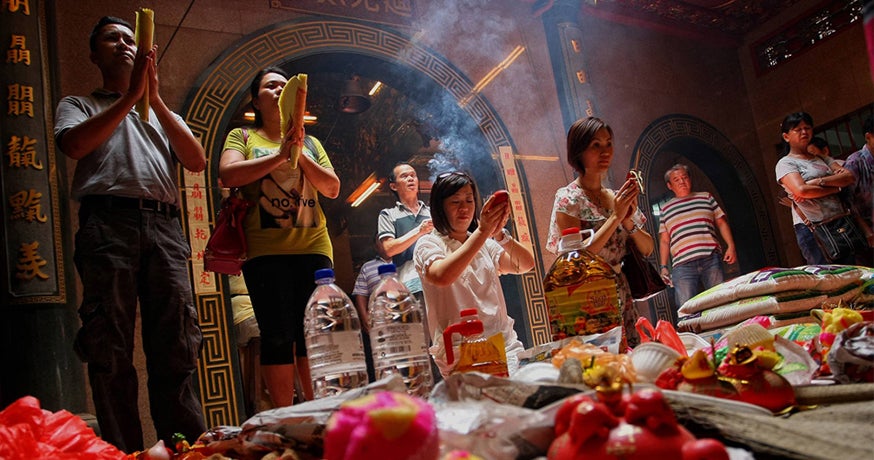As February rolls around the corner, many Malaysians are gearing up to prepare for their annual Chinese New Year celebration. For the Chinese, it is a celebration deeply rooted in culture and tradition.
Sadly, there are many traditions that are dying out in the modern world; in fact, some are already dead! Well, we think it’s about time to get schooled on some of these dying Chinese New Year traditions before they become completely extinct! You might not have even heard of some of these before!
1. Preparing a ‘sacrifice’ to the God of Kitchen Stoves
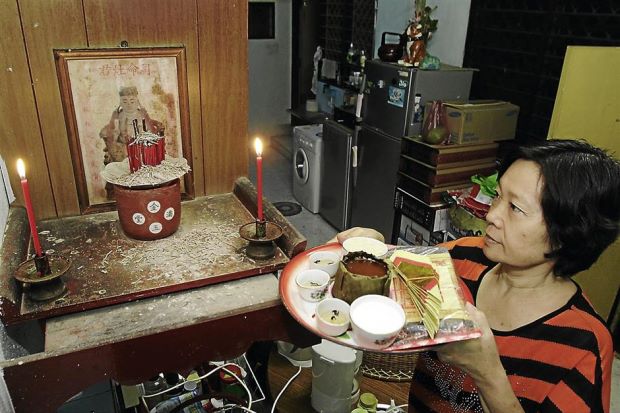
Source: the star
Legend has it that the God of Kitchen Stoves would go back to heaven on the 23rd Day of the 12th month in the lunar calendar to report back to the Jade Emperor on what each household has been doing in the past year.
Hence, Chinese families would put up a pair of couplets that read “Speak of Good Deeds in Heaven, Keep Peace on Earth” on the entrance of their kitchen in hopes that the God of Kitchen Stoves will put in a good word for them to the Emperor. Sacrifices of sugar cakes, deep-fried pancakes and bean-curd soup are offered as it is believed that the God will say sweet things about the household after eating the sugar cakes.
2. Getting married without setting a prior date
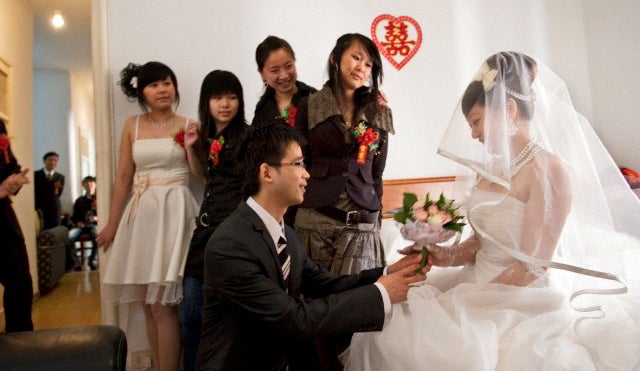
Source: china-mike
It is believed that the last week of the 12th month in the lunar calendar is taboo-free. Hence, a lot of couples wishing to tie the knot are free to do so on any day during this week. Anyone getting married soon? 😉
3. Fermenting flour on the 28th day of the 12th lunar month
Back then when refrigerators and baking powder never existed, households would wait until the last two days of the 12th month to start fermenting dough. This is because dough with yeast would go bad really fast, hence all other food preparations are done first, leaving the fermentation process to as close to the cooking date as possible.
4. Steaming buns on the 29th day of the 12th lunar month
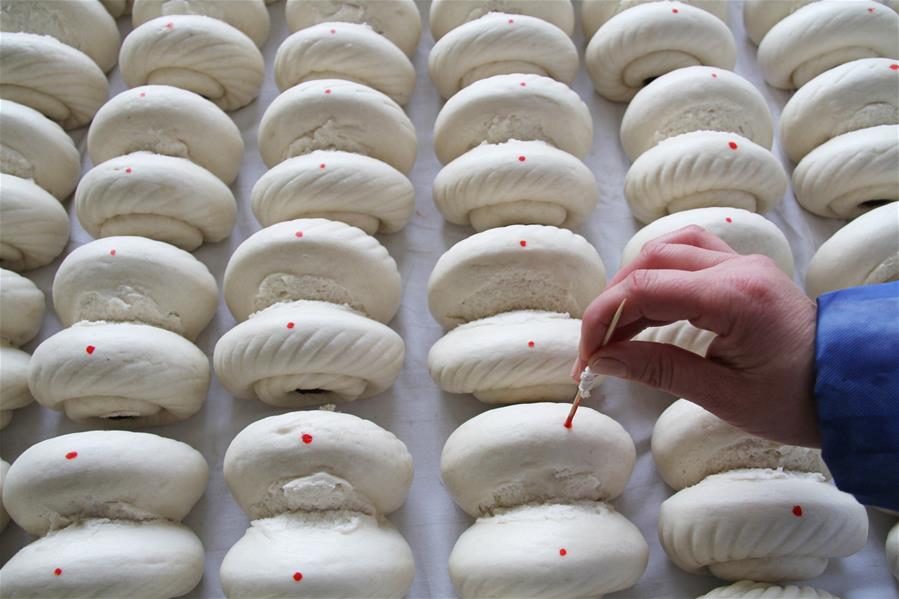
Source: xinhuanet
It was customary for households to start preparing main dishes – including steamed buns – for Chinese New Year as it was considered unlucky to be cooking from the 1st to 5th Day. People would prepare steamed buns, usually stuffed with red bean or red date paste, for the coming week beforehand.
5. Setting off opening-door firecrackers on Chinese New Year morning
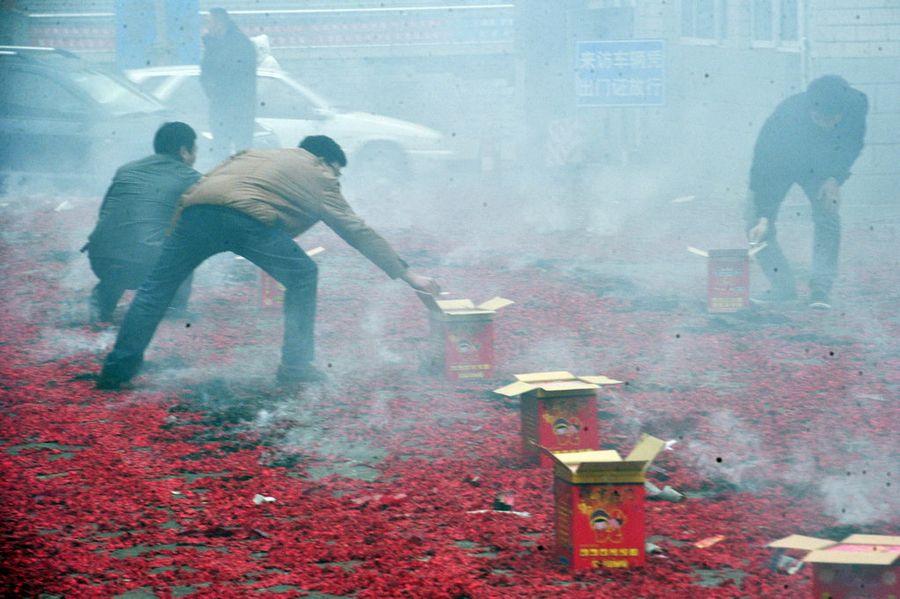
Source: china smack
Back in the day, households would compete to be the first family to set off opening-door firecrackers on the 1st Day of Chinese New Year. Traditionally, a string of small firecrackers would be set off first, followed by three big firecrackers. This symbolised ringing out the old year and ushering in the new year. The louder the bang of the three firecrackers, the more luck for business in the coming year!
6. Offering sacrifices to the God of Fortune
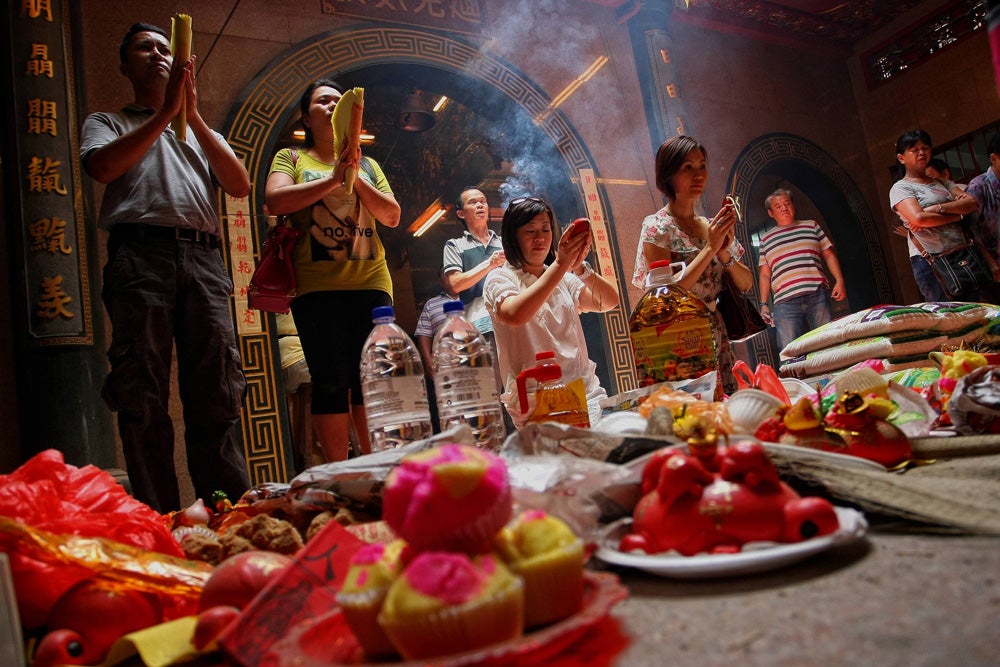
Source: survey crest
Offerings of a whole pig, goat, chicken, duck or live carp are given as sacrifices to pray for luck for the coming year. In Chinese folklore, the God of Fortune is also believed to be the Five Roads God, with the five roads referring to North, South, Central, East and West roads. Nowadays, most Chinese families offer fruits and burn incense instead.
7. Observing Scarlet Dog Day
This day refers to the 3rd Day of Chinese New Year and was said to be an inauspicious day to go visiting. According to beliefs, evil spirits would roam the earth on this day, hence it would be bad luck to go out lest you bump into one. Stay indoors, guys!
8. Grave-visiting on the 3rd Day
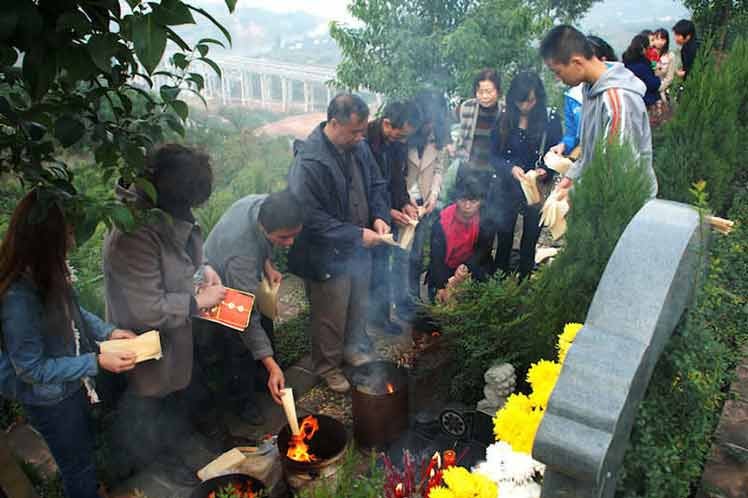
Source: prensa latina
As the 3rd Day is said to be inauspicious to go around visiting friends and family, it was traditionally set aside as a day to appease the dead. Hence, families would often visit the grave sites of their deceased to give offerings and burn incense.
9. Greeting the God of the Kitchen Stove
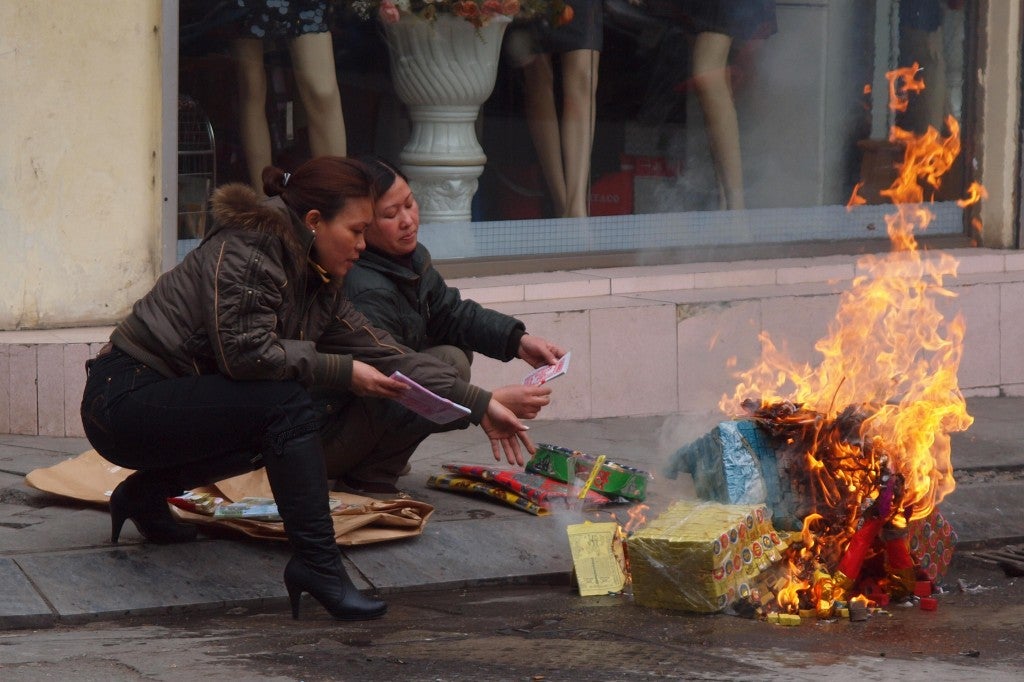
Source: mainline photo
On the 4th Day, the Chinese would welcome the God of the Kitchen Stove back into their households by burning incense and paper ‘money’, setting off firecrackers and giving offerings of meat and fruits.
10. Practising the Chinese New Year Sweet Tea ritual
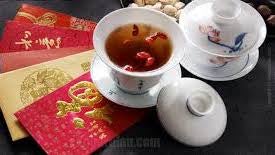
Source: tea guardian
Much like the traditional Chinese Tea ceremony at weddings, the younger generation would offer sweet tea to their elders and ask for forgiveness as well as offer well-wishes for the coming year. In return, they would receive an angpao from their elders that symbolise luck and prosperity. We should bring this tradition back, more chance to get angpao wey! 😛
So, there you have it! Although we’ve become an advanced society in this modern world, it is important to remember our cultural roots and traditions. How many of these traditions do you still practise today?
Also read: 6 Things Most Malaysians Never Knew About the Common CNY Traditions

